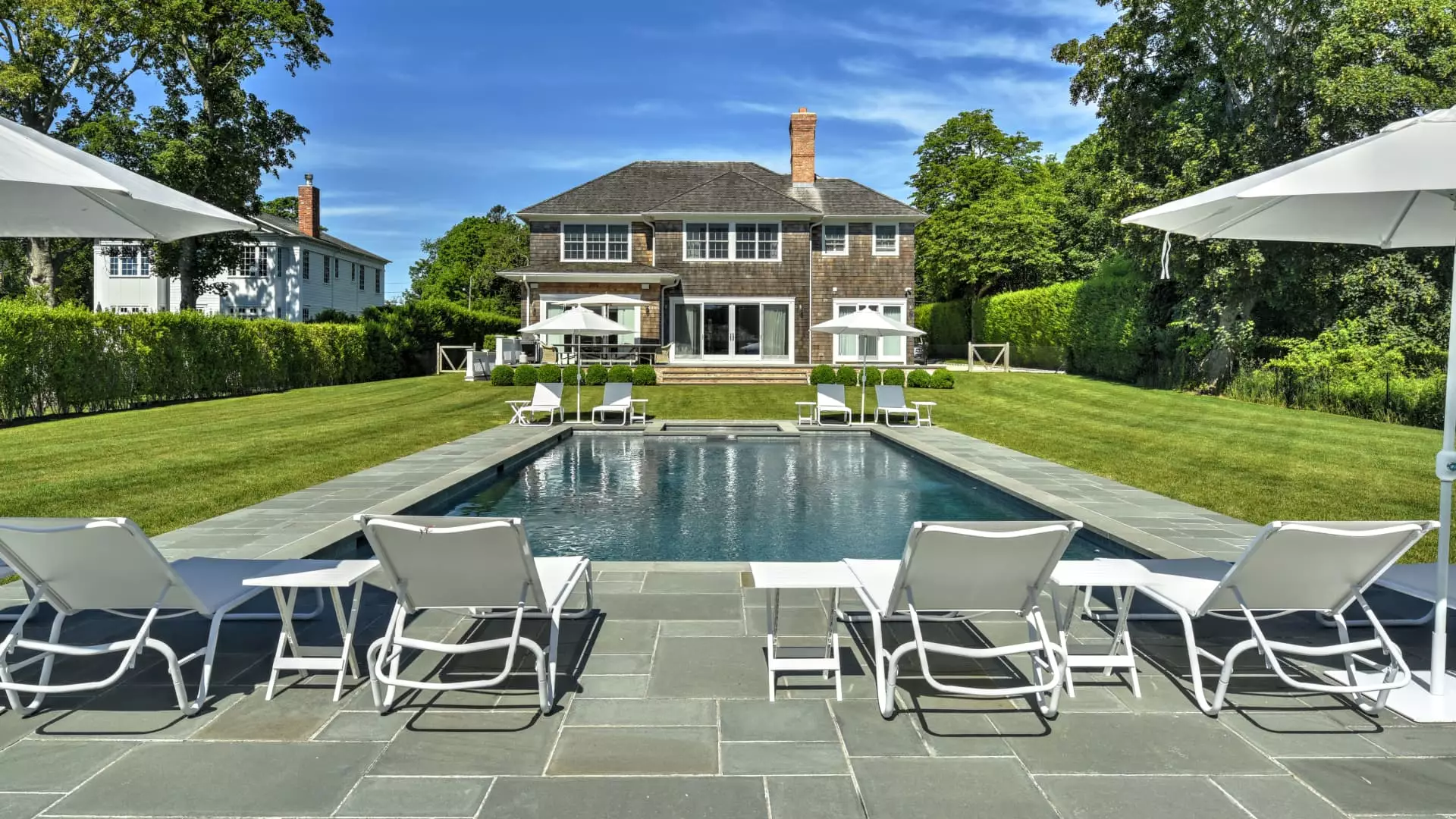As summer descends upon the iconic Hamptons, the luxury rental market buzzes with an unexpected and chilling silence. Reports indicate a staggering 30% decline in rental activity compared to previous years, with some brokers witnessing drops as severe as 75% for ultra-high-end properties. This isn’t merely a seasonal fluctuation; it reflects a growing concern among affluent consumers, who are tightening their purse strings in response to an increasingly uncertain economic climate. The question begs to be asked: What has caused this dramatic shift in a market typically characterized by its exuberance and high demand?
For too long, the Hamptons have represented the pinnacle of affluent summer getaways, but the worries surrounding economic stability and inflation have turned this vibrant community into a perplexing tableau of unresolved events and postponed decisions. According to seasoned broker Enzo Morabito, clients are waiting longer than ever to finalize their summer plans. “People are holding onto their money,” he states bluntly. This anxiety over financial stability interrupts the usual rhythm of last-minute bookings that define the market; an unsettling trend that reveals deeper issues at play.
The Waiting Game: A Cautious Consumer Base
The psychological impact of current geopolitical and economic trends can’t be understated. Wealthy individuals, who historically might have engaged in impulsive spending sprees, are hesitating to commit to luxury rentals. The cold, rainy weather in May has compounded the problem, limiting the intangible “vibe” of summer that often compels last-minute decisions. Renters, often accustomed to neck-breaking competition for prime properties, are instead adopting a more cautious approach.
Many affluent consumers are now pondering whether a sojourn in the Hamptons is the most judicious choice for their summer plans. With options spreading across Europe and the West Coast, the tug-of-war between potential destinations has prompted indecisiveness. The allure of the Hamptons, traditionally a bastion of social cachet and summer fun, seems to be waning, at least for this year. It certainly disrupts the narrative of what a seasonal rental market should look like—a frantic race to secure the most desirable properties before they disappear into the ether.
A Silver Lining or a Mirage? The Bargain Hunt for Renters
Despite the looming uncertainties, one factor may serve as a glimmer of hope for prospective renters: increased inventory. With many high-end homes left unbooked, renters may uncover hidden gems at pleasantly reduced prices—some properties offering up to a 20% discount in the hope of attracting tenants. This inversion of fortune could offer a crucial lifeline to those willing to seize the moment, attempting to navigate a market marked by financial apprehension.
The conversation shifts from what amenities and views a property might boast to the simple question of affordability. As the market trends downward, homeowners are indeed motivated to become flexible, allowing shorter rental periods in an effort to entice clients. This compromise reflects changes in consumer behavior, driven by both the anxiety over external economic pressures and an increasing desire for value in what has historically been an illustration of excess.
Brokers like Gary DePersia highlight this shift, noting that while prime rentals would have been quickly snatched up in years past, they now languish on the market. The opportunity for discerning renters to negotiate not only better deals but also terms serves to create an advantageous position for consumers that further juxtaposes the previously unwavering demand of the season.
Credentials in the Face of Market Disruption
Amidst the uncertainty, it appears that the sales market demonstrates a bizarre strength. Hamptons home sales, although down 12% from last year’s quarterly stats, boast a remarkable increase in median prices, rising by 13% to a record-setting $2 million. Such contradictory signals illustrate the often unpredictable nature of real estate—just when it seems the ice is too thick to break, unexpected potholes of opportunity emerge.
The surge in high-end sales elsewhere, such as Manhattan, may also cast a silver lining upon the Hamptons market. The allure of luxury continues to persist, but the motivations underlying such purchases diverge from those of typical vacation rentals. This duality indicates a pressing need for strategic adaptation among homeowners, as they weigh market signals and economic indicators against the backdrop of shifting consumer sentiment.
This is a tale of two markets: one of grand luxury purchases and another of dwindling rental activity filled with trepidation. As summer unfolds, it becomes clear that while uncertainty reigns in the rental arena, resilience prevails in the higher-end sales segment. As more individuals evaluate their summer travel plans in light of fluctuating conditions, it’s evident that the essence of what the Hamptons represents may be undergoing a significant transformation. The question now arises: can the area reassert itself as the quintessential summer retreat or will it languish under the weight of economic disquiet?



Leave a Reply